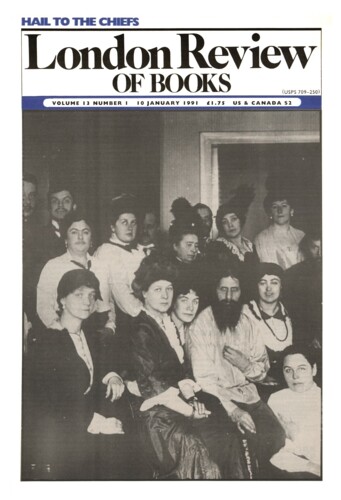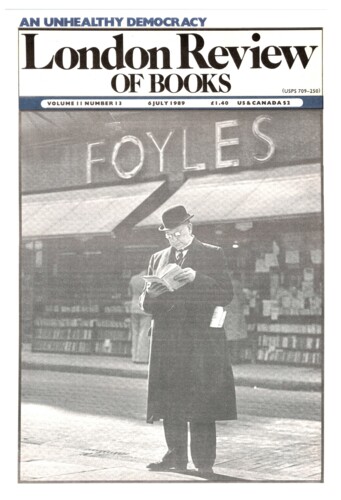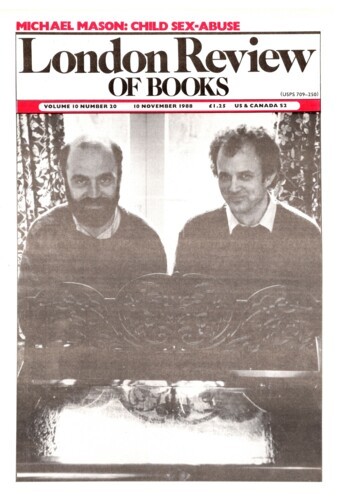Diary: On Angela Carter
Susannah Clapp, 12 March 1992
Last month Birnam Wood came to Putney Vale Crematorium. Or so it seemed. As the attenders at Angela Carter’s funeral emerged from the chapel, surrounding trees began to rearrange themselves. They shifted and they sprouted feet. They marched – and they dispelled themselves. They shook themselves free of foliage and dwindled. They changed into Special Branch men, moving forward to enclose Salman Rushdie, who had been speaking at his friend’s service. The hullabaloo they evoked bore out a Carter point which had been cited by Rushdie as an example of her genial frankness. When her lung cancer was diagnosed a year ago, he had volunteered his assistance: ‘I don’t think,’ she replied in her meticulous way, ‘I need any help from you …’’





